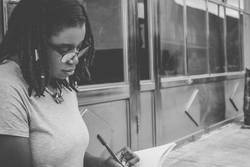How to Develop a Personal Philosophy of Early Childhood Education
To be a professional, you have to have an opinion on important topics related to your field and create a brand or philosophy on your approach.
Read on to discover why a personal early child care philosophy is important and how to develop your own!
Why a Personal Early Childhood Philosophy is Important
When you apply for ECE jobs, many prospective employers will ask you to explain your own personal philosophy and approach to education so they can begin to get a picture of who you are as a teacher.
However, developing your philosophy should go beyond a simple requirement for finding employment.
A personal philosophy of early childhood education should be used as a tool that not only guides your own teaching, but also helps your staff and parents understand your individual approach to early learning.
Developing Your Personal Philosophy
Going through the process of creating your own philosophy of early childhood education can help you more clearly define what kind of teacher you want to be and what sort of career path you want to take. Your ECE philosophy will become a document that explains your preferred style of teaching and outlines your strengths and areas of particular interest.
The following are some of the most important areas you may want to address in your personal philosophy document, but it is truly up to you to create a philosophy that accurately expresses your unique teaching style, values and beliefs when it comes to early childhood education.
Outline what you believe the role of a teacher is in an early childhood classroom.
What role should the educator take in the presentation of new ideas to children vs. the discoveries that children make on their own?
Explain how you will address the different learning styles of children in your care.
What types of opportunities and activities will you include in your early learning curriculum to encourage the best possible learning among all students?
Describe how you will handle conflict in the classroom and handle behavioral issues among students.
Detail how and why this approach will work.
Discuss how you will handle a variety of personalities, special needs and cultural diversity within your child care center to create a welcoming environment.
Detail your strategies for balancing the needs of these children with the rest of the children in your care.
Include details about how you will consult ECE colleagues and involve parents in your early childhood education curriculum.
Explain how you will maintain open lines of communication between parents and your staff in order to continually improve your center.
Communicating Your Philosophy of Early Childhood Education to Staff & Parents
Once it is complete, ensure that both your staff members and parents have access to your personal philosophy statement. Explaining the values that guide your teaching and the teachings of your child care center overall will help your staff ensure that their own teaching styles are in line with the type of atmosphere you want to create.
Additionally, sharing your personal philosophy of early childhood education will also benefit parents. Consider providing them with a copy of your statement when they begin to show interest in your child care facility. This may help parents decide if your approach to education is in line with their own values, and if your center would be a good fit for their child.
To ensure your child care center has the best communications possible with parents and staff, learn how HiMama can help your preschool or daycare!
Related Links
Never miss another important moment by improving your observation techniques!
Ron is the Co-Founder of Lillio a social-purpose business that helps early childhood educators improve learning outcomes for children.
More by Ron
Ron Spreeuwenberg
January 15th, 2019
8 mins
Related Articles

The Benefits of Loose Parts Play for Young Children
December 10th, 2025 | Maddie Hutchison



